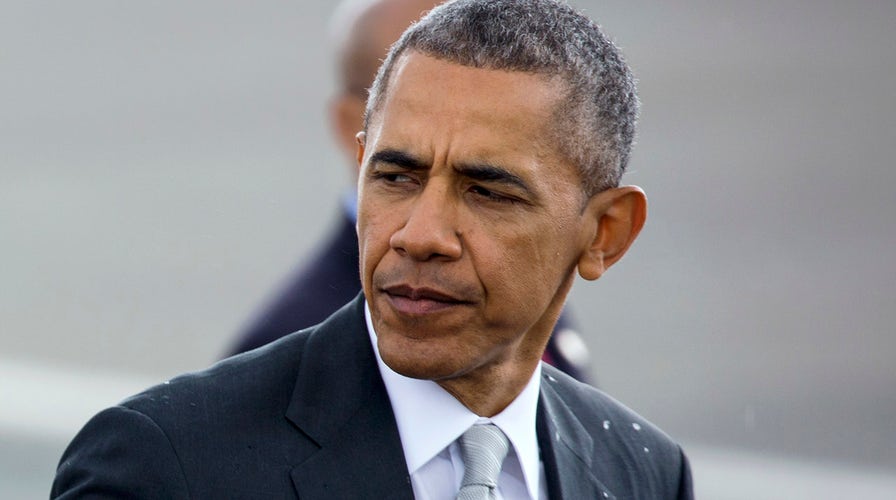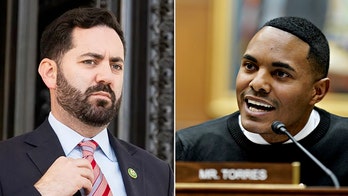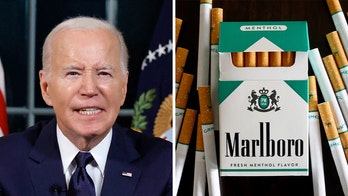Obama becomes longer wartime president than George W. Bush
'America's Newsroom' breaks down where we stand today in the war on terror as ISIS attacks rock Iraq
Get ready for one last regulatory hurrah from the Obama administration.
According to one analyst, President Obama has just a week left -- or until about May 23 -- to issue major regulations if he wants to ensure that the next administration and Congress cannot unravel them.
It's not a hard-and-fast deadline. But the American Action Forum's Sam Batkins points to the Congressional Review Act, which gives Congress 60 working days to try and rescind a rule, in setting it.
After late May, unless days are added, Congress would have less than 60 working days left -- in turn resetting the review period to next year, and raising the risk that a Republican president and GOP-led Congress could nix any late-issued Obama regs in 2017.
So, Batkins argues, the administration will have to act quickly.
The White House did not respond to questions Monday about whether the president intends to hastily issue rules to beat the floating "deadline."
But federal officials have been busy in recent days, with rules expected shortly on everything from food stamps to overtime pay and others already being rolled out.
“The administration regulated pretty much everything,” Batkins, a regulatory policy expert at the conservative-leaning American Action Forum, said Monday.
Batkins pointed out the administration just last week issued dozens of rules, including one by the FDA on e-cigarettes and another by the EPA on methane emissions from new gas and oil wells.
A total of 58 final rules were issued last week, also including one by the Treasury Department on banks having to verify the identity of customers who open accounts. Batkins called it the “leader” of last week’s rules because of the $2.5 billion cost of implementation to businesses and state and local governments.
He said the administration had, as of Friday, issued 26,175 final rules at an estimated cost -- or financial “burden” -- of $779 billion.
In the remaining days and months of Obama’s final term, he is also expected to issue a rule on food stamps, which attempts to give recipients better access to healthier food but could limit convenience stores from continuing to accept benefits cards.
One of the most controversial rules still expected comes via the Labor Department and would expand overtime pay to roughly 5 million U.S. workers and cost about $2 billion.
“That’s one of the costliest rules of the year,” Batkins said.
He said the move appears to fall under Obama's 2014 “I’ve got and pen and I’ve got a phone” promise to make changes when Congress fails to act.
Batkins acknowledged that a president indeed has several ways to change rules or laws, including executive action. However, the tactic is open to legal challenge -- as is the case with Obama’s 2014 executive action on immigration that is now before the Supreme Court.
At the same time, trying to rescind a rule under the Congressional Review Act is rarely successful. Many have tried but only one administration has successfully nixed a rule in this way, according to Batkins.
President George W. Bush, with a GOP-led Congress, in 2001 repealed an Occupational Safety and Health Administration ruling by the Clinton administration on workplace ergonomics.
“The … rule would have cost both large and small employers billions of dollars and presented employers with overwhelming compliance challenges,” Bush said at the time.
Batkins also said that Obama, upon taking office in 2009 with a Democrat-controlled Congress, did not use the act to rescind rules from his predecessor's term.
AAF is run by former Congressional Budget Office Director Douglas Holtz-Eakin.





